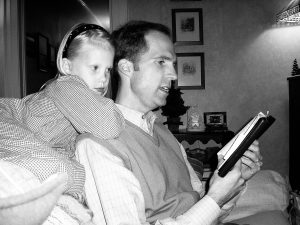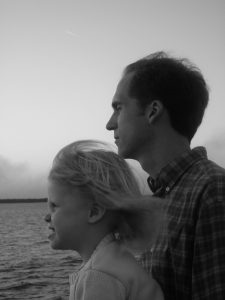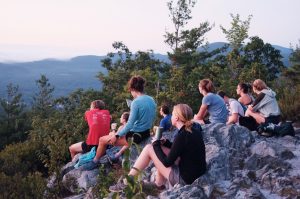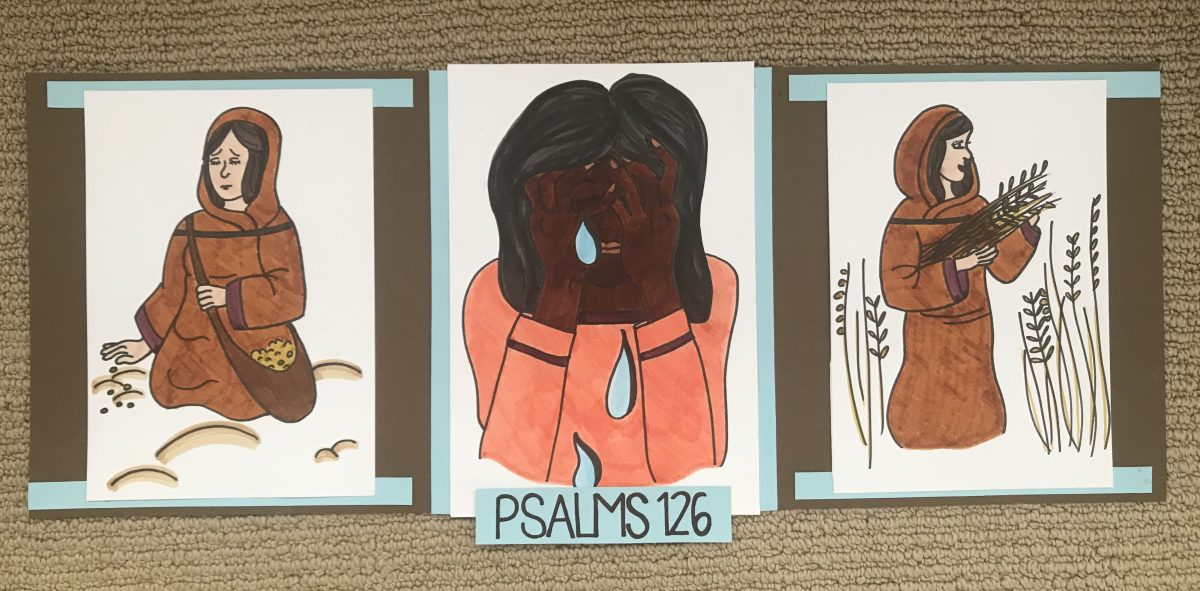Those who sow with tears
will reap with songs of joy.
Those who go out weeping,
carrying seed to sow,
will return with songs of joy,
carrying sheaves with them.
Psalm 126:5-6
When I read these Bible verses this morning, I was struck with a vivid image of a woman on her knees, sadly sowing seeds in the distance while another woman, smiling triumphantly, ran toward me, her arms overflowing with wheat. I decided that I had to draw this image, so I set my schoolwork aside and devoted my entire day to capturing it – something I could do thanks to the flexibility my quarantine schedule allowed.
I realized that even though the joyful woman was in the foreground of the picture in my head, sorrow and anguish were central to her story. As a result, I chose to have a crying woman with her face in her hands as my focal point. Initially, I saw the sorrowful sowing and triumphant reaping as separate events, but as I drew, they became more connected. Something clicked: sheaves of wheat are the fruit of tears. In other words, tears are the seeds, the starting point, the origin of the sheaves.
Often, I struggle to recognize my sorrow as a legitimate emotion, but this winter when I was homesick at Williams, a friend recommended that I sit in my sorrow and really let it sink in. These verses remind me that sorrow is not something to be brushed aside or ignored. Instead, sorrow should be planted. But what does that mean?
Planting sorrow can look like praying to God at two in the morning, holding my face in my hands, thinking quietly, and listening to sad songs. Yet when a seed is planted, it also becomes hidden and removed from sight. In that respect, planting sorrow also can look like giggling with my sisters as we dance together, cooking with my mom, and working out with my dad.
Many of us may be planting sorrow during COVID-19, desperately waiting for something to grow. However, when you plant seeds, you need to physically let go of the seed so that it can fall into the dirt and begin to grow. There is a releasing of control over your sorrow, and we need to trust God for the eventual harvest. I want to remind us that growth takes patience. In the Bible, God is tremendously patient with His chosen people, the Israelites. He urges them to return to Him for hundreds of years before sending them into exile. But that’s not the end of the story – He ultimately saves them and frees them from their captors. God promises us that He has already made everything beautiful in its time.[1]
As God’s people, I do not think that we are at the point of returning with songs of joy quite yet, but there is hope that God will completely transform our sorrow into singing as we turn our hearts to Him. Let’s keep planting.
*Artist’s note: The blue lines extending off the page represent how this cycle of sorrow and joy is ongoing.
[1] Ecclesiastes 3:11
Written by Sarah Gantt ’23




